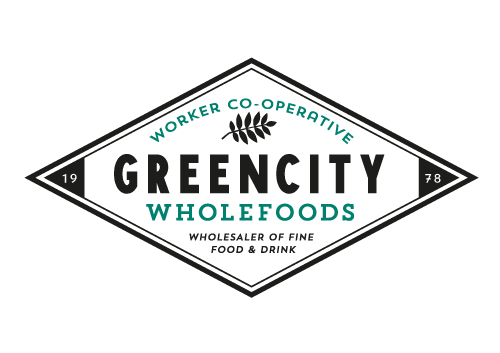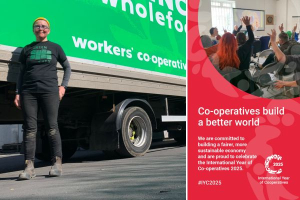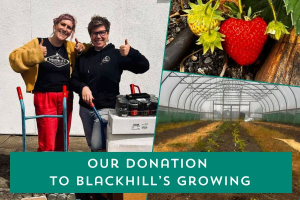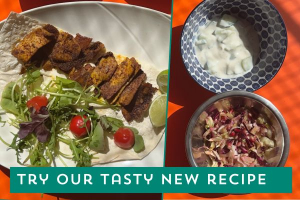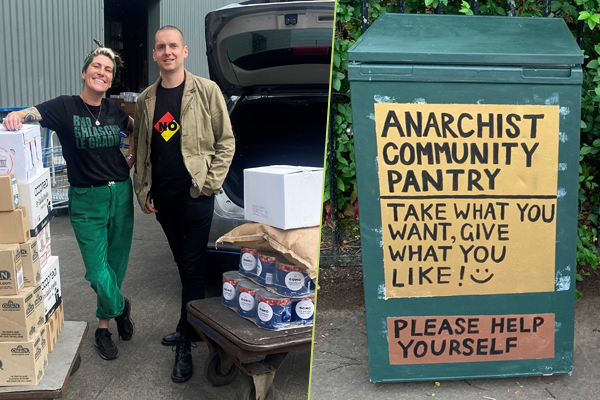
We were delighted to make our monthly donation to Glasgow Food Not Bombs this month. They’re a group who we really admire with their no nonsense approach to giving away free vegan food to anybody who needs or wants it. The group answered 6 questions to help us learn a little bit more about what they stand for.
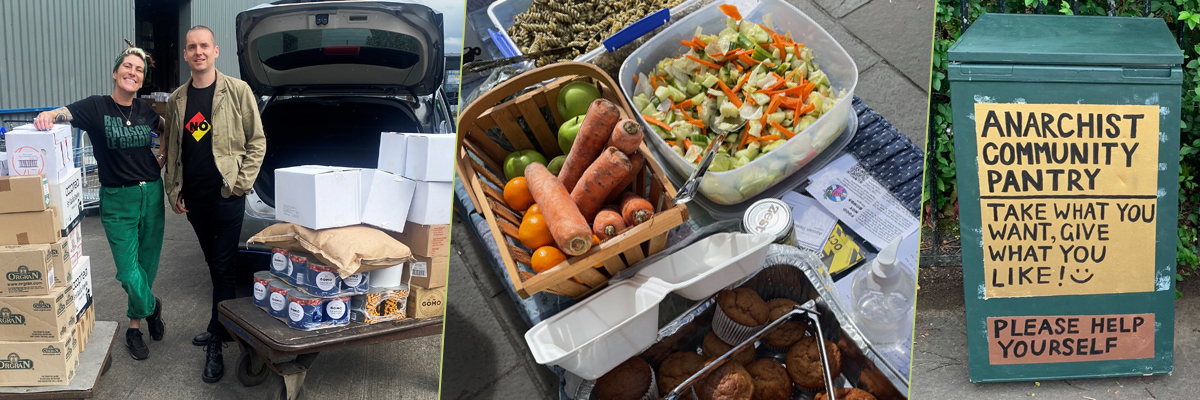
Tell us about how it all started and a little more about Food Not Bombs.
Food Not Bombs started in the US in the 80s as a protest against war, inequality, poverty and injustice. There are an estimated 1000 independent cells operating all over the world. The Glasgow chapter in its current form shared its first meal in January of 2021. Glasgow Food Not Bombs is an autonomous and non hierarchical mutual aid group, in line with the anarchist beliefs of our members. We are not a charity, none of us is making a profit and we have no formal structure.
For an overview of Food Not Bombs’ origins we recommend the recent episode of the podcast 'Cool People Who Did Cool Stuff' from the wonderful Margaret Killjoy: https://omny.fm/shows/cool-people-who-did-cool-stuff/part-one-food-not-bombs-the-criminal-mutual-aid-co
How many people are involved in your organisation?
Globally, tens of thousands! But our chapter has… between 1 and 100 members.
Tell us a little about the things you do to support the local community.
We take food that would otherwise go to waste and cook/distribute it at our weekly stalls. We also provide non food items like tents, nappies, toiletries, and radical literature. Anyone is welcome to take what they need, we don’t ask questions or set conditions. Our members always eat at the stalls – this is a shared meal and we don’t want to stigmatise accepting freebies or reinforce power imbalances. By repurposing surplus food we want to highlight the cruelty of unequal resource distribution – tonnes and tonnes of perfectly edible food is discarded daily while the poorest are forced into degrading means testing and endless bureaucracy just to scrape by. In other words, we live in an era where scarcity is avoidable and therefore has to be enforced. Meanwhile, politicians enjoy subsidised 3 course meals, as children go hungry. Billions of pounds is spent on weapons while teachers and nurses rely on food banks. We installed 3 community pantries last summer which were lifted (including their contents) by Glasgow City Council who saw them as a public safety risk. Isn’t hunger a public safety risk?
We aim to empower people to resist the oppressive capitalist regime through building community and taking care of each other. Sharing food is only one part of the struggle for liberation, but it’s hard to riot on an empty stomach.
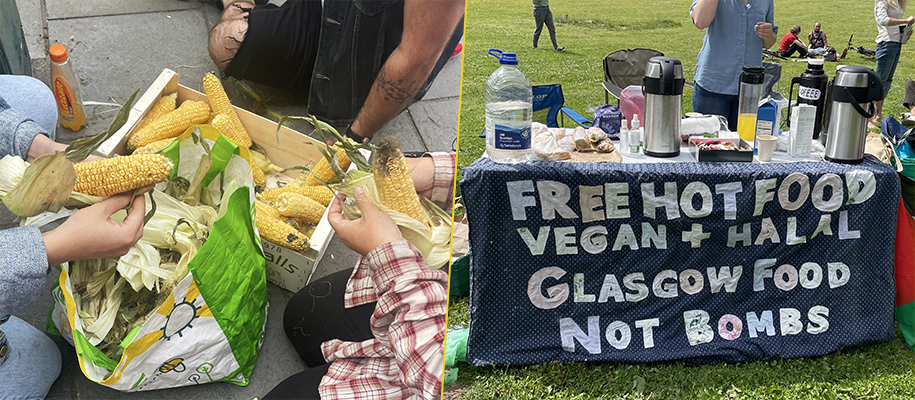
How do you think the COVID pandemic affected your organisation and your role in the wider community?
As our chapter was born in the first year of COVID it’s hard to say how things would have been different. In fact, for our founding members it was only possible to set up the group because we were furloughed or working remotely. We said at the time; “imagine how much easier it would be to organise a resistance if we didn’t have to work”. Of course, that’s a good reason to keep workers exhausted and burnt out. Many of those who come to our stalls are still suffering from the fallout of our government's shocking mishandling of the pandemic. Hospitality workers in particular are on their knees, many anticipating mass unemployment as pubs, cafes and restaurants are forced to close due in part to astronomical energy bills. The first lockdown saw mutual aid groups popping up all over Glasgow, which both highlighted government incompetence and cruelty and offered an alternative vision for how we can support each other without relying on politicians to help us. Whatever the future holds, we hope to still be feeding people.
What steps do you think need to be taken to improve health & wellbeing in the community?
Well, it’s a truism to say that eradicating capitalism needs to happen (even if it’s also true), so we’ll try to be more constructive and say that the way society reaches that ultimate destination is also how we cope in the meantime: by building the new world in the shell of the old, what we call prefigurative action. That means doing what you can now, improving physical and mental wellbeing by strengthening community bonds through kindness, solidarity and empathy, because when you have those strong ties you’re so much better equipped to deal with the many struggles coming your way. It also means moving life beyond coldly transactional interactions to mutual exchanges of food, knowledge and information to everyone’s benefit. Lastly, we like to think we encourage the people we talk to into “looking up” a little bit, to highlight the structures and systems that are making life hard for everyone. We don’t preach, but by explaining what we’re doing and why, we hope to stoke a little productive rage. And then we can all go for capitalism.
You can pick one chef/person to come and work with you, who is it and why?
It’s always the last person we gave a meal to! We would love it if everyone who got food from us felt empowered to join us with their recipes, perspectives and history to help us improve conditions for them, their friends, family and neighbours. But we’d also like a go at radicalising Nigella.
Thanks to Glasgow Food Not Bombs for answering our questions! Keep up with them at facebook.com/FnBGlasgow or instagram.com/glasgowfoodnotbombs

